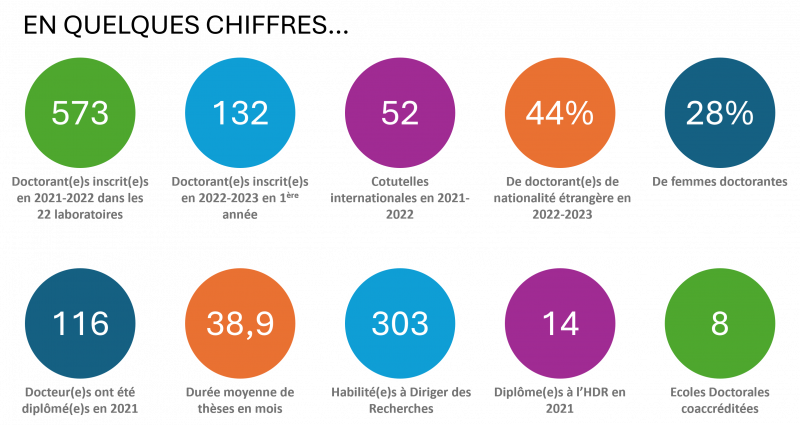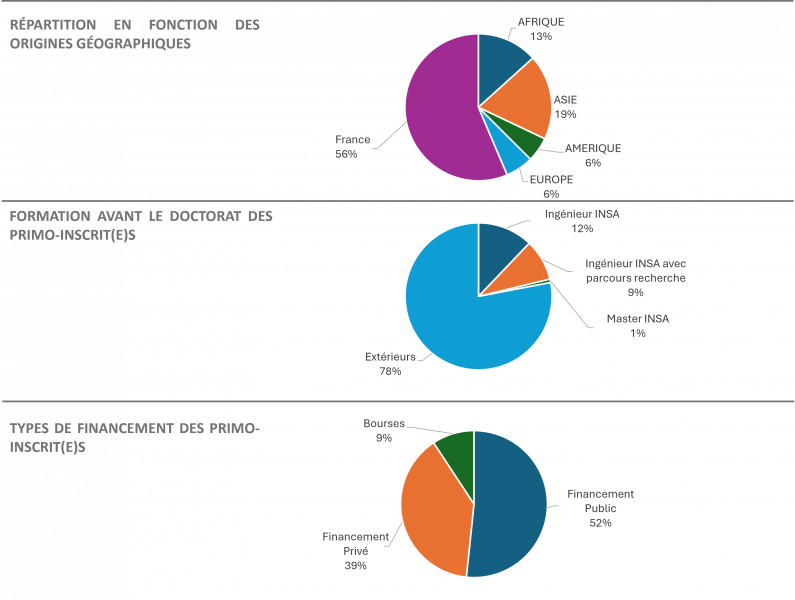
Ph.D.
The Ph.D. cursus is a professional research experience, validated after defense of a thesis by the degree of doctor. The research work is supervised by the thesis director in a research laboratory attached to a Doctoral School. The Ph.D. student, his/her thesis supervisor, any co-supervisors, the direction of the host research laboratory and the direction of the doctoral school commit each other by signing the thesis charter. The Ph.D. is concluded with the writing of a thesis that constitutes the validation of a scientific work that has allowed the construction and acquisition of knowledge.
This work experience provides essential skills to work in the industrial or academic sector. Throughout their thesis, Ph.D. holders acquire technical knowledge but also highly sought-after technical and soft skills, such as managing the complexity of a project, on the operational and strategic levels, the global and synthetic understanding of a problem, risk-taking, difficulty management and tenacity, autonomy, communication but also a maturity related to their ability to question themselves.
PhDs have profiles that are of great interest to companies. Contrary to popular belief, only 25% of PhDs hold a position in public academic research, while 75% of them pursue their career in business. According to Marie-Christine Baietto, FEDORA founder and first Director, "This ratio is a formidable indicator of the professional world's interest in the "doctor" profile, seen as a high-potential collaborator! "
INSA Lyon actively participates in the life of 8 Doctoral Schools co-accredited by the Ministry of Higher Education and Research (MESR) and supervises two of them: MEGA and EEA.
INSA Lyon relies on the excellence of research on the LyonTech-la Doua campus, with 23 recognized laboratories, including 18 of them associated with Public Scientific and Technological Institutions (EPST) such as CNRS, INSERM, INRIA and INRA. INSA's laboratories rely on their disciplinary and trans-disciplinary excellence and are organized to meet the 5 structuring societal challenges:
This research strategy is based on collaborations and funding at regional, national, European and international level.
Openness to the world, great adaptability, strong mobility are all assets recognized in the student, the doctor or the INSA researcher, to which are added an excellent understanding of stakes, a spirit of synthesis and unparalleled reformulation. It also takes him/her an average of 3 months to place himself/herself in a professional field once (s)he graduates.

